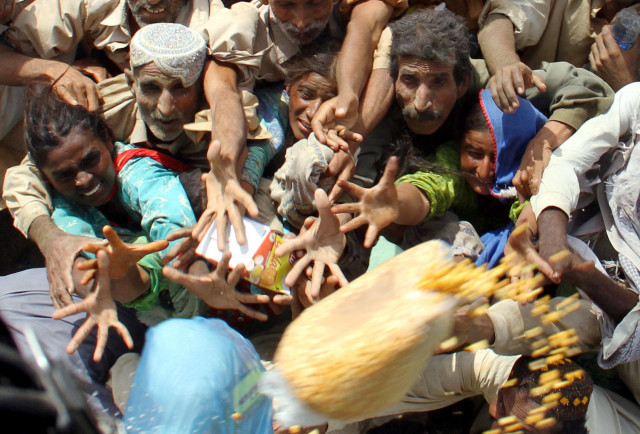Rehabilitation now our biggest challenge: Taj Haider
Sindh government has spent Rs300m on flood survivors in Karachi.

Rehabilitation now our biggest challenge: Taj Haider
During his visit to the Urban Resource Centre on Thursday, Haider gave a briefing on the government’s efforts in dealing with the post-flood situation across Sindh.
The province was affected in three phases, said Haider, adding that Kashmore, Jacobabad and Shikarpur had been hit first, followed by Matiari, Thatta, Hyderabad, Tando Muhammad Khan, Khairpur and Nathan Shah. As the floods forced people to move out of the affected areas, they were compelled to take refuge in Karachi - the last stop for people who could not be rehabilitated anywhere else.
On August 8, there were 16 camps in the city where 22,000 IDPs were being housed. By August 23, 35,000 IDPs were living in 31 camps. The number of IDPs increased to 45,000 in 41 camps by August 25 and jumped to 87,000 IDPs in 69 camps - 65 of which were set up in schools - within the next 15 days.
It was estimated that more than 0.1 million people also migrated to Karachi to live with their relatives, said Haider.
The biggest cost for the government was the transportation of the IDPs, said the coordinator. After Jati and Sajawal were hit, around 80,000 people decided to camp out on the streets of Makli, under the open skies, he said, adding that, “this continued for 10 days and 40 trucks were sent every day with food for the IDPs until we convinced them to move to Karachi.”
The cost of one bus from Karachi to Kandhkot was Rs35,000.
Many of the people who were coming to Karachi did not know where to go and would sit on the roads, lost, until the government arranged to move them to the relief camps in the city.
The timely distribution of hygienically prepared meals at camps was also a cause of concern for the government, as was looking after the children - who constituted almost 65 per cent of the total number of IDPs.
“They needed a special diet, for which the government distributed tetra packs of milk. We also tried to provide diversions in the form of sports, toys and books for the children,” said Haider. The provision of drinking water was a problem, which was resolved by providing IDPs with bottled or chlorinated water, he said, adding, “I am glad that no epidemic spread due to any water leaks”.
Published in The Express Tribune, October 22nd, 2010.



















COMMENTS
Comments are moderated and generally will be posted if they are on-topic and not abusive.
For more information, please see our Comments FAQ